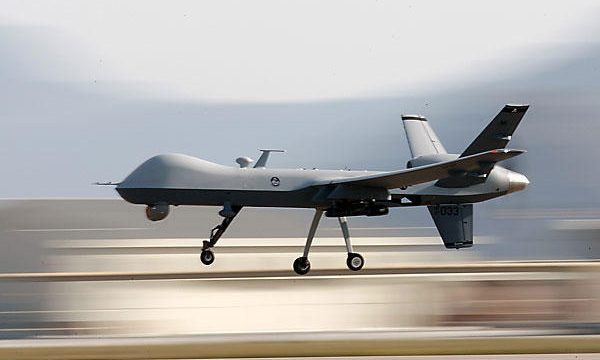Drones In North Dakota Make Big Headlines After Conviction

Farmer Rodney Brossart, whose case made big national headlines when the Nelson County Sheriff called in a US Border Patrol drone to help with his arrest, was convicted recently. Not for the original crime of cattle rustling which brought law enforcement to his doorstep but rather for his standoff with the cops. The conviction, like his arrest, was the first by way of drone.
The issue was discussed by Fox News contributor and former judge Andrew Napolitano (video at the link), who worried about the use of a drone without a warrant. But I’m not sure the judge has it entirely correct.
I wrote a story this week for WatchDog.org, picked up by Human Events, and in it state Senator Kelly Armstrong, R-Dickinson, points out that law enforcement did have a warrant to arrest Brossart and were using the drone to execute the warrant:
Sen. Kelly Armstrong, R-Dickinson, agrees that the privacy threat posed by drones needs to be addressed in the Legislature, but said the use of a drone in Brossart’s arrest and conviction was appropriate. “They didn’t have a warrant for the use of the drone, but they did have a warrant for arrest,” said Armstrong, a former defense attorney. “If it keeps officers safer and reduces the chance of shots fired, I don’t have a huge problem with the technology being used in that regard. They didn’t use the drones to build the case against him. They used the drones to effectuate an arrest after they already had a warrant for him.”
I don’t think the use of a drone in the Brossart case was any sort of an abuse, but I do worry that we’re entering an era where law enforcement is going to start using things like drones without any policies in place to govern that use and protect our privacy.
Which is an issue Lt. Governor Drew Wrigley addressed to me in the same article:
The man charged with leading North Dakota’s oversight of the use of drones agrees. Lt. Gov. Drew Wrigley, a Republican, heads the Northern Plains Unmanned Aircraft Systems Authority, a “six-member commission assembled to advance the state’s UAS opportunities,” according to a news release. An executive order from Gov. Jack Dalrymple created it.
Wrigley said that commission is also charged with oversight of how drones are used in the state.
“One of the things we talked about a lot with the FAA is that North Dakota has the first and only one of its kind in the nation privacy oversight committee,” he said. “If you want to test in the airspace in North Dakota, you have to vet your plan through the committee.”
But Wrigley isn’t insensitive to privacy concerns and says he plans to invite Becker to discuss them with his commission. “It’s real. This is a very serious concern. We should be concerned about this just like we’re concerned with what the NSA is doing with our phones.”
North Dakota’s leadership has gone ga-ga over drones, rolling out the red carpet with $14 million in subsidies for the drone industry in Grand Forks, and it might be a little easier to believe their state concerns about privacy if they had been a little more cooperative with Rep. Rick Becker who proposed drone regulations in last year’s legislative session. Becker also talked to me about that:
Becker thinks opponents of his bill put the cause of economic development above privacy. “It should have passed,” he said this week. “During the whole process throughout the debates and committee meetings I did not hear one cogent argument against it. There was emotion, some diversion, but there was really not a strong argument against it. ”
The campaign to bring the UAS industry to North Dakota may have been the bill’s undoing, according to Becker. “It could be that if UND hadn’t been up for one of the six test sites that it would have passed,” he said. “That’s saying we’re not going to put civil liberties ahead of economic gain.”
He said he introduced the bill to address privacy concerns posed by drones through the legislative process, before it’s settled in the courts. “The idea that it’s a new technology — and it really is kind of a gray area,” he said. “We can wait for it to go through the courts, or we can admit that it’s a gray area.” An argument that frustrated Becker during the 2013 session was his legislation was a “solution in search of a problem.”
“A lot of legislation is derived at preventing problems, especially when it comes to incursions on civil liberties,” he said. “If you take that approach, I guess you could wait for people’s rights to be infringed upon.”
I asked Becker if he plans on introducing another bill regarding drones in the 2015 session if he’s re-elected (he’s on the ballot this year) and he said he wasn’t sure yet.




